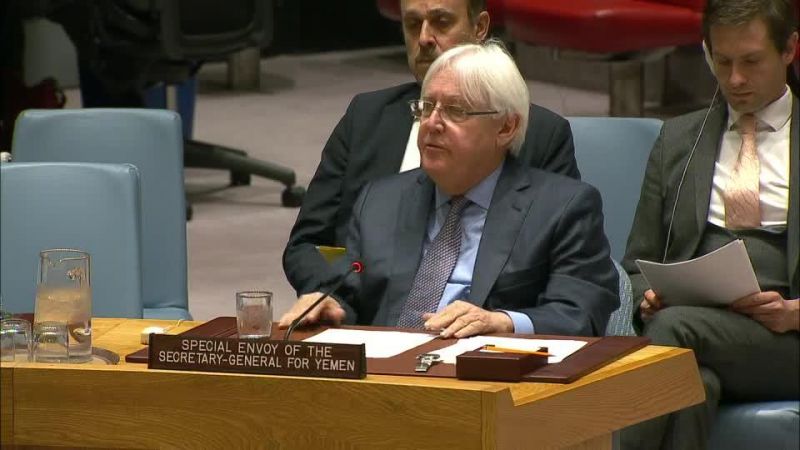
Local Editor
The best way to resolve Yemen’s humanitarian crisis is to fix the economy so stemming a slide in the riyal currency is the top international priority, the U.N. special envoy said on Thursday.
Martin Griffiths said the United Nations is discussing an emergency plan to stem the riyal’s fall and restore economic confidence. Yemen is one of the poorest Arab nations and faces the world’s worst humanitarian crisis, exacerbated by a war that begin in 2015.
Three-quarters of its population, or 22 million people, require aid and 8.4 million people are on the brink of starvation.
“There’s no doubt in my mind whatsoever that this economic issue is now the overwhelmingly most important priority,” envoy Martin Griffiths told Reuters.
“Within the U.N. we’re talking about the need for such a master plan ... an immediate set of measures over weeks which the World Bank, IMF, UN agencies, the Gulf obviously, the government of Yemen could come together to discuss,” he said.
The riyal has lost more than half its value against the U.S. dollar since the start of the war. Authorities sought to boost liquidity last year by printing money, but it plunged from 250 to the dollar after the first batch of notes was rolled out. It was trading at around 700 on Thursday.
Soaring prices have put some basic commodities out of reach for many Yemenis and the central bank has struggled to pay public-sector salaries on which many depend as foreign exchange reserves dwindle.
Griffiths said that by November the United Nations hopes to resume consultations with the warring sides. These are the Houthis and the resigned regime of former Yemeni President Abd Rabbu Mansour Hadi, which is backed by Saudi Arabia, the United Arab Emirates and the West.
The first attempt in three years at talks collapsed a month ago after the Saudi coalition blocking the Houthi delegation from traveling to Geneva.
Griffiths, who took up his post in March, said he was close to securing a solution in order to avoid more “last minute surprises”.
“What I’d like to see happen is within the next couple of weeks maximum we could have resolved those issues so that we can then say, ‘OK, we now know the logistical basis that we have, let’s go back to the table,” he said in the Emirati capital Abu Dhabi.
“I’d like it to happen in November but I’m not predicting at the moment because we’ve got to get these logistical issues out of the way.” He said the talks would probably happen in Europe but declined to confirm a specific location.
The coalition intervened in Yemen’s war against the Houthis in 2015 with the aim of forcefully restoring the resigned Hadi regime.
Source: News Agencies, Edited by Website Team